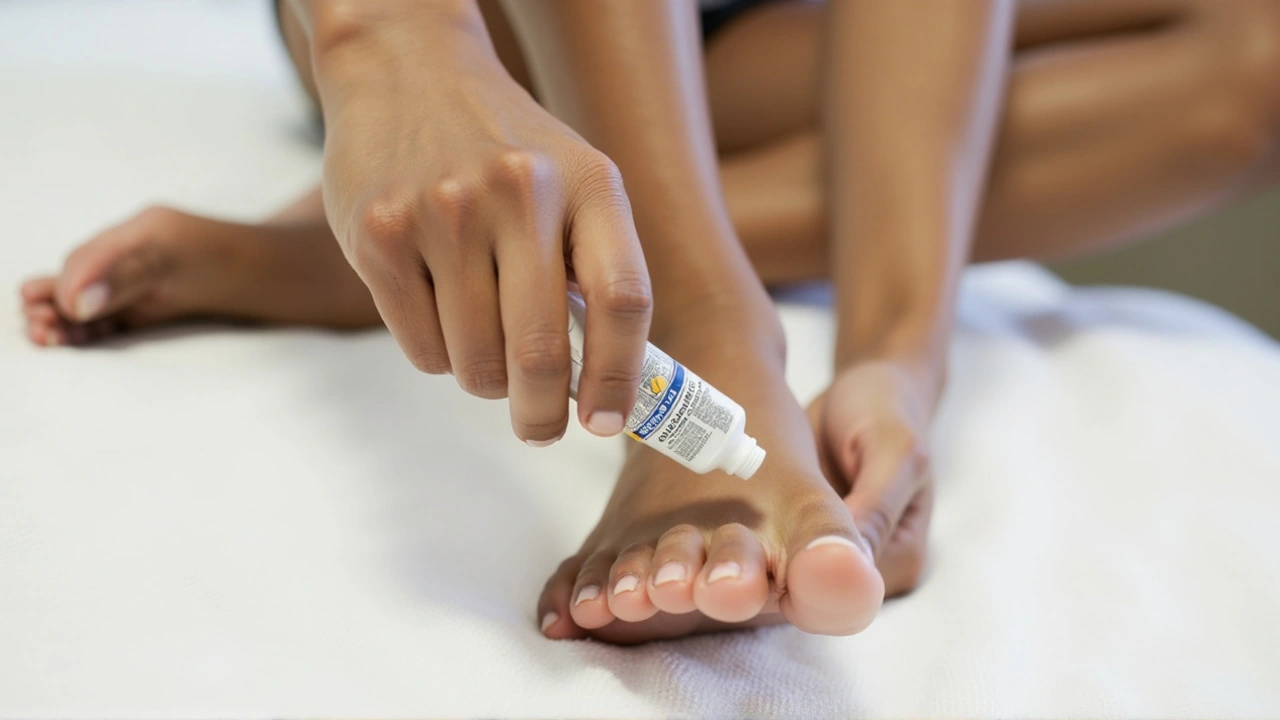Athlete's Foot — Spot It Early and Treat Fast
Got itchy, scaly feet between your toes or on the soles? That's often athlete's foot (tinea pedis), a common fungal infection. It feeds on warm, damp skin and spreads easily in locker rooms, pools, and shared showers. The good news: most cases are simple to treat at home if you act quickly.
Symptoms and what causes it
Typical signs are itching, burning, flaking, cracked skin, and sometimes blisters. You might notice peeling skin between toes or a dry, scaly patch on the arch. The fungus thrives in sweaty shoes, tight socks, and damp environments. People with reduced immunity or diabetes can get worse infections, so take it seriously if you fall into those groups.
Practical treatment steps that work
Start with an over-the-counter antifungal cream, spray, or powder. Look for active ingredients like terbinafine (often sold as Lamisil), clotrimazole (Canesten), or miconazole. Apply exactly as the product says — usually once or twice a day — and keep using it for the full course. You might feel better in a week, but keep the treatment going for 2–4 weeks to stop a return.
If the infection is spreading, painful, or doesn't improve after 2–4 weeks of OTC treatment, see a doctor. They may prescribe a stronger topical or an oral antifungal. Nail infections need longer treatment and usually require a doctor’s prescription.
Home care helps speed recovery. Wash feet daily with soap, dry thoroughly (especially between toes), and use a separate towel. Wear breathable shoes and change socks whenever they get damp. Cotton or moisture-wicking socks are better than synthetic ones. Rotate shoes so each pair dries fully between wears. For public showers or pool areas, wear flip-flops.
To cut the chance of reinfection, treat your shoes and socks. Antifungal sprays or powders for footwear work well; you can also wash socks in hot water. Disinfect shared floors or bath mats if multiple people in the house are affected.
Small extra tips: trim toenails short and clean, avoid walking barefoot in shared spaces, and don't share towels or footwear. If you have diabetes, poor circulation, or a weakened immune system, check with your healthcare provider at the first sign of trouble — infections can progress faster in these cases.
Athlete's foot is annoying but beatable. Use a proven antifungal, keep your feet dry, and treat your shoes. If progress stalls or symptoms worsen, get medical help so the infection doesn't spread or become chronic.

